Your version of Sitecore XP nearing end of life? Here's why migrating to Optimizely should be your next move
As older versions of Sitecore Experience Platform (XP) approach end of life (EOL), many businesses face a critical decision. Should they continue with the complex (and costly) process of upgrading to XM Cloud, or explore alternative platforms that offer a more user-friendly and modern approach to content management?

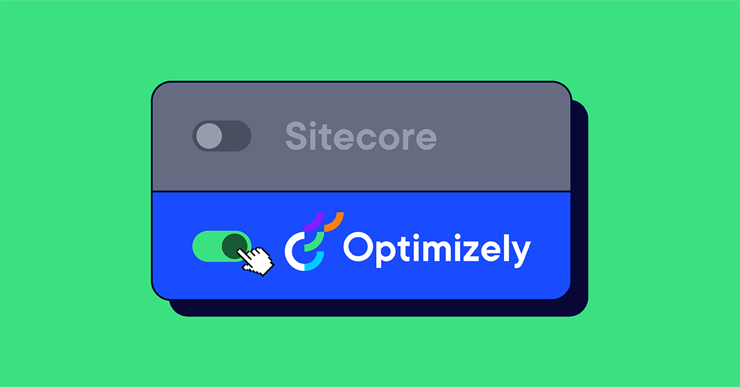
In this article, we’ll explore why migrating from Sitecore XP to Optimizely could be the right move for your enterprise, offering a fresh start with a DXP that can deliver exceptional digital experiences and help your business achieve more market impact, faster.
What is Sitecore end of life?
While your version of Sitecore XP likely won’t come to a complete halt overnight, end of life generally means no more official security updates, bug fixes, and support for customers. This leaves those yet to migrate to an alternative CMS vulnerable, as websites running on older instances of XP may no longer receive critical updates, leaving you susceptible to security risks, performance problems, and compatibility issues.
Why is this a problem for current Sitecore customers?
While Sitecore has tried to prepare the ground for a transition over to XM Cloud, most Sitecore users are still yet to make the move. Much of this hesitancy is due to wariness about the future direction of Sitecore (Sitecore’s owner, EQT is selling Sitecore), and try as it might, Sitecore can’t seem to push the needle.
End of life for Sitecore XP customers poses huge risks for businesses (and likely makes the platform unsuitable for continued use). Let’s get into exactly why:
-
No more security updates: This means your website automatically becomes increasingly vulnerable to hacks and data breaches.
-
No more bug fixes: Any issues that crop up are likely to remain unaddressed by Sitecore, which will have an adverse effect on your site performance and user experience.
-
No support: With developers moving on to newer versions, finding someone who can troubleshoot or fix Sitecore XP issues will only get more difficult, and will likely come at a premium. Without official support from Sitecore, any issues that arise will require custom fixes, which can be unpredictable (not to mention, expensive).
-
No new features: We’re guessing you don’t just want to manage content — you want a DXP solution that can evolve alongside your digital strategy. Websites that continue to operate on Sitecore XP will miss out on innovative features enterprises need, including personalized content delivery, advanced collaboration features, and AI tools. At Optimizely, for example, we’re building AI into our product offerings to streamline workflows. (For more on this topic, check out our article on AI agents.)
Choosing to stick with Sitecore XP might seem the right option in the interim, especially if your business needs more time to pull together the resources needed to either upgrade to Sitecore XM Cloud or switch to a different DXP provider. Regardless, it’s worth bearing in mind that this must be a temporary solution, as with time, certain critical features and integrations are likely to stop working entirely.
Shouldn’t I just upgrade to Sitecore XM Cloud?
If you’re thinking about sticking with Sitecore, moving to the latest version can help ensure your website will continue to receive critical security updates, keeping it better protected against emerging vulnerabilities.
However, migrating from Sitecore XP to XM is not a matter of a simple upgrade. It’s essentially a complete rebuild and will likely be just as challenging from an implementation perspective as migrating to a different DXP entirely. The time it takes to migrate to Sitecore XM Cloud depending on how complex your site is and how much custom development is required. That said, you should expect it to take several months to complete.
And, while it’s undoubtedly more secure and modern than Sitecore XP, Sitecore XM Cloud does present several challenges that are misaligned with the needs of modern enterprises.
Here are some of the key challenges with Sitecore XM Cloud:
-
The technical complexity isn’t going anywhere: Due to its ongoing use of proprietary frameworks, Sitecore customers often need to involve specialists, which slows down time-to-market for new projects.
-
Not future proof: Against Microsoft’s recommendation, Sitecore XM continues to leverage .NET 4.8x and legacy ASP.net dependencies, which put customers a step behind in terms of today’s development practices. (On the flipside, Optimizely is the only enterprise CMS on the market to support the latest .NET Core framework, which offers major security upsides and performance gains compared to Sitecore XM.)
-
Prohibitive pricing: Sitecore customers on G2 report that Sitecore's pricing is 40% higher than other DXP platforms. Aside from the initial outlay for the platform, customers also complain of extra charges added on that significantly driving up the overall cost of ownership and cut down on the return on their investment.
-
Higher total cost of ownership: Operating Sitecore XM involves substantial investment in terms of ongoing maintenance. For many enterprises, these costs can be prohibitively high, especially when compared to more cost-effective DXP alternatives like Optimizely that offer more enhanced functionalities and a quicker implementation and speedier ROI.
-
Limited features: Sitecore XM might well lack the features you need, causing frustrations among your teams who are under increasing pressure to keep up with the latest market trends and customer needs.
TL;DR: As certain versions of Sitecore XP reach EOL, businesses face a costly and time-intensive upgrade to Sitecore XM Cloud, with substantial ongoing development costs. This challenge leads many businesses to ask, why not migrate from Sitecore to another CMS platform?
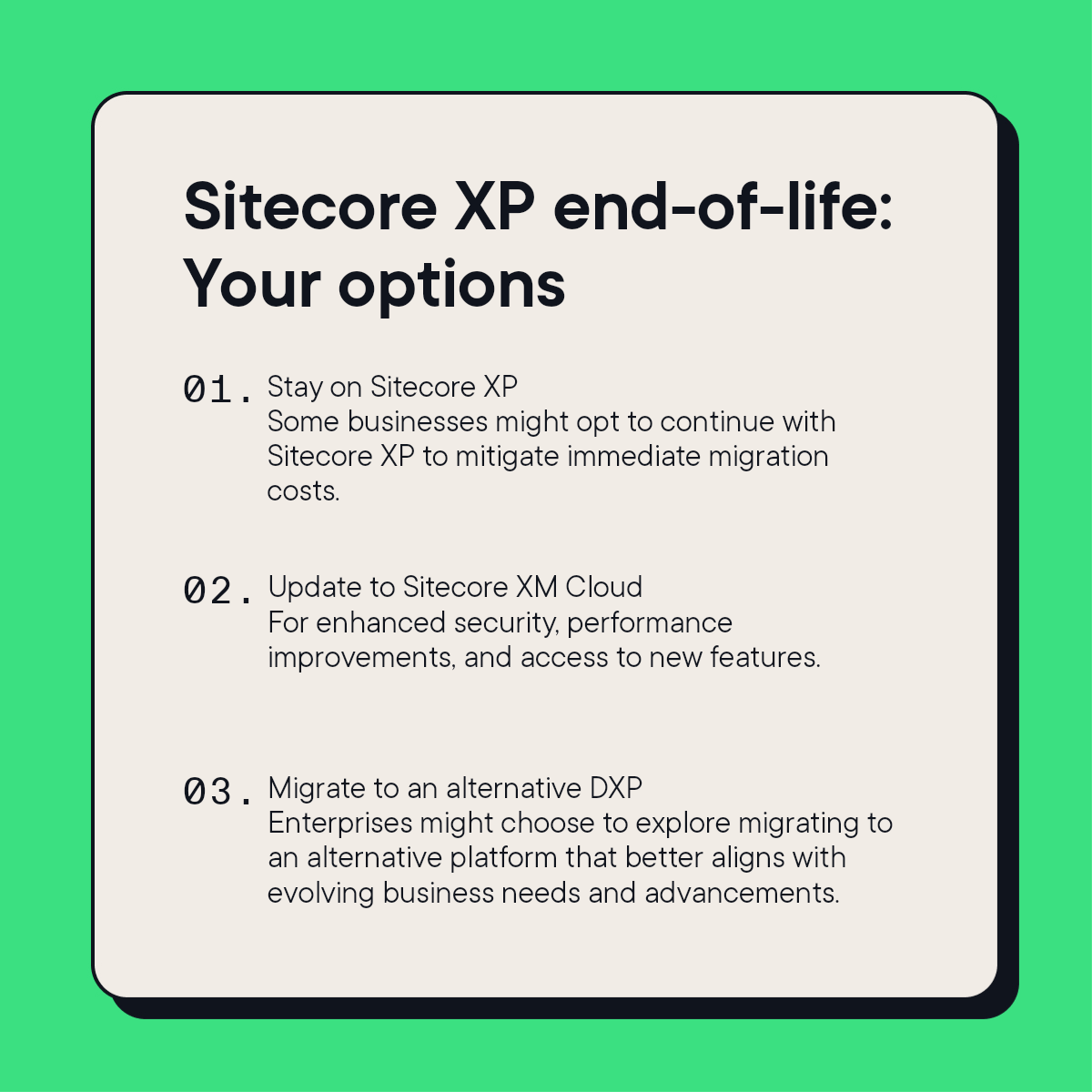
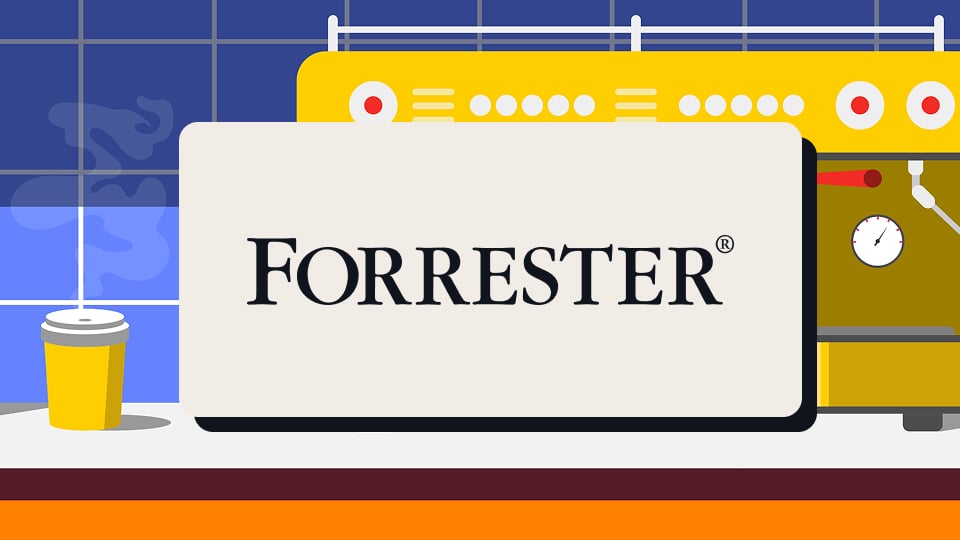

Forrester Wave™ for CMS
Benefits of switching from Sitecore to Optimizely DXP
Moving from Sitecore XP to Optimizely DXP offers several compelling advantages that directly translate into better business outcomes and operational efficiency. Here’s why Optimizely stands out against other DXP competitors as the smart choice for enterprises:
-
Managing content is easy
Optimizely is often praised by non-developers for its intuitive visual interface. With Optimizely, marketers and content creators can manage, update, and design websites without technical expertise, getting campaigns to market faster and increasing efficiency across the board.
This is in stark contrast to Sitecore, which requires extensive coding and development expertise. Additionally, Optimizely’s user friendliness cuts down on training time and increases productivity across marketing teams.
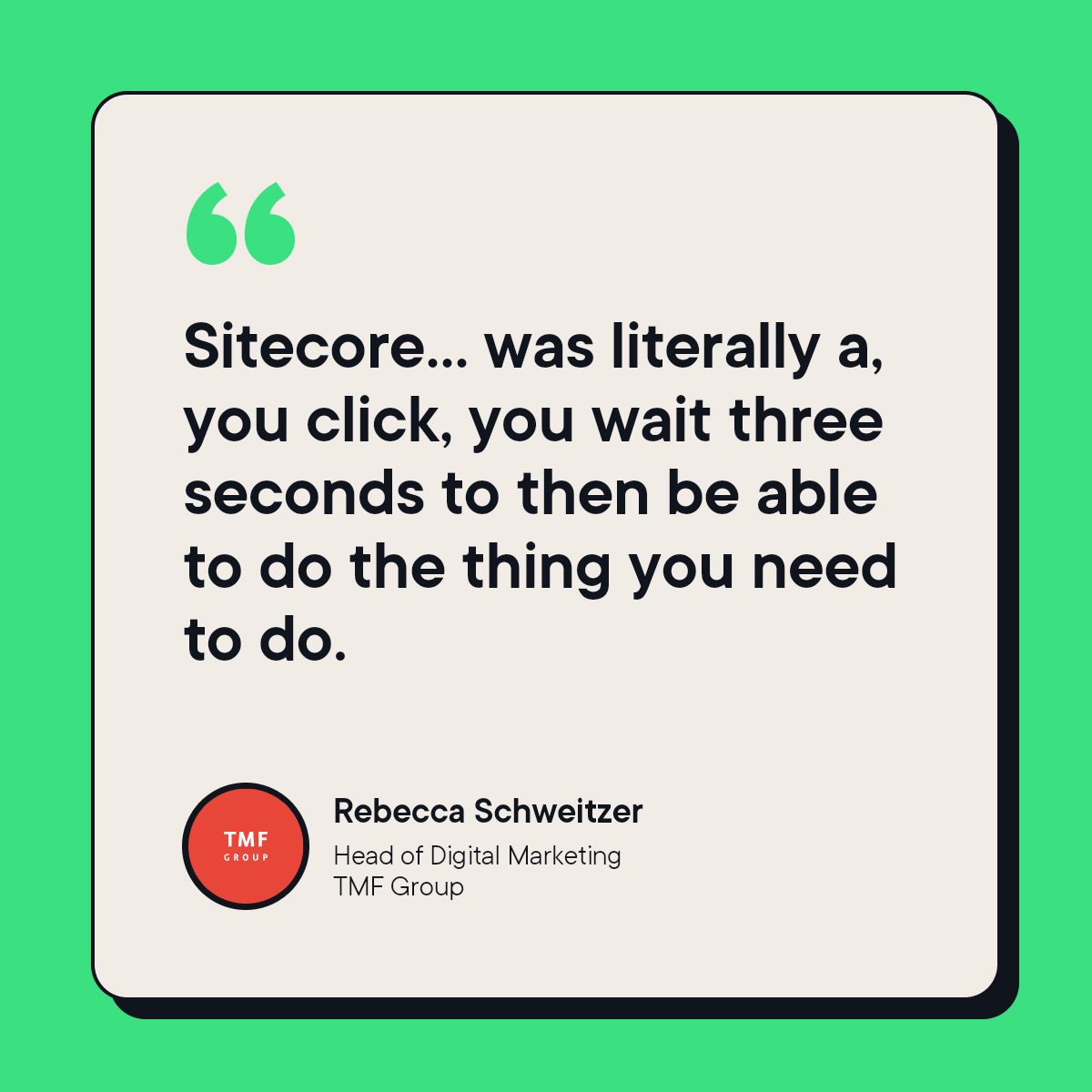
-
It comes with features your marketing team won’t find in Sitecore
Optimizely’s CMS includes cutting-edge features geared towards marketing teams, like AI-driven personalization, experimentation, and optimization tools.
And unlike Sitecore, Optimizely focuses on ease-of-use, empowering marketing teams to continuously improve their digital experiences without needing to draw on constant developer support. -
It’ll cost less, both upfront and over time
By cutting down on over-reliance on development teams for every little change, Optimizely streamlines content updates and optimizations, freeing up development teams for more strategic work.
Additionally, Optimizely’s SaaS-based infrastructure eliminates the need for costly server maintenance and updates, ensuring more scalability and cutting down on the need for dedicated tech support. The combination of simplified content management, automation, and reduced maintenance costs results in a lower total cost of ownership as compared to Sitecore.
Benefits of moving to Optimizely DXP vs. upgrading to Sitecore XM Cloud
-
Continuous innovation: Optimizely comes with features like AI-driven content recommendations, personalization, and experimentation, helping to keep you competitive in an evolving market.
-
Faster time-to-market: With Optimizely’s streamlined setup and integration process, you can launch digital experiences far quicker than with Sitecore’s often complex and lengthy implementations.
-
Marketer-friendly tools: Optimizely’s Visual Builder enables marketing teams teams to easily create, test, and manage content without extensive developer support.
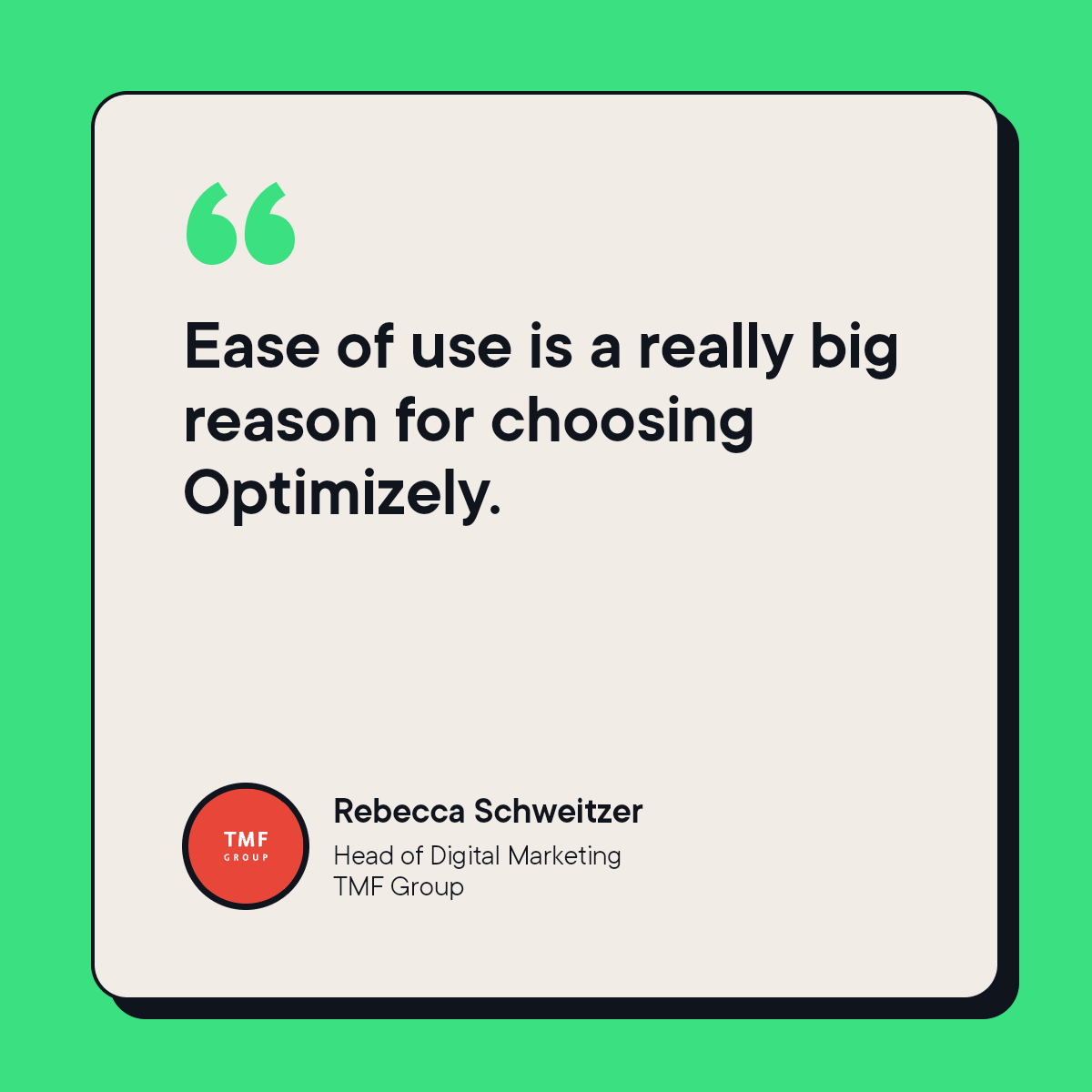
-
Faster time-to-value: Optimizely is rated by customers as easier to set up, quicker to implement, and delivering a faster return on investment compared to Sitecore.
-
Transparent pricing: Optimizely offers transparent pricing with fewer hidden costs, making it more affordable compared to Sitecore’s costly licensing fees and extra charges for additional features.
-
Easier maintenance and upgrades: Unlike Sitecore’s complex, developer-heavy environment, Optimizely’s cloud-native platform simplifies maintenance, meaning less need for specialized development resources.
-
Future-proof architecture: Optimizely can adapt as your business grows, incorporating automation, AI, and cloud infrastructure for long-term value and flexibility.
Your options: Upgrade or migrate from Sitecore
|
Upgrade to Sitecore XM Cloud |
Switch to Optimizely DXP |
|
Stay on Sitecore but face the same .NET 4.8 limitations. You’ll benefit from cloud-hosting but will lack true future proofing and AI-driven innovation. |
Optimizely offers modern headless, headless-hybrid, API-first architecture with built-in personalization, experimentation, and AI capabilities, offering scalability and innovation. |
|
Some functionality improvements with cloud hosting. However, feature enhancements will be limited. The platform still requires complex maintenance, and the pace of innovation is slower. |
Continuous updates bring cutting-edge features, like AI-driven content recommendations, faster. The platform is easier to maintain and offers better tools for both marketers and developers. |
|
Migrating to Sitecore XM Cloud will require a complete rebuild anyway due to underlying platform differences and reconfiguration requirements. |
Migration to Optimizely requires similar effort but brings long-term benefits like lower TCO, faster time-to-market, and a future-proof, scalable architecture. |
How do I know it’s time to consider a new DXP?
We’ve already outlined how the steep learning curve, high maintenance, and development costs are a common complaint among Sitecore customers.
Once you’ve identified the factors that are pushing you away from Sitecore, and pulling you towards an alternative DXP platform, like Optimizely, you can assess what you want to achieve by migrating platforms. On the push front, for example, let’s say you’re struggling with the slow pace of innovation in Sitecore. It might be the case that you’re concerned about Sitecore’s lack of a modern product vision and roadmap. Or, your team finds Sitecore unintuitive and complex, with even small changes proving to be a big hassle for both your marketers and developers.
Then, there are the factors that are encouraging you to consider platforms that are more likely you meet your requirements now and into the future — like Optimizely.
-
Does it come with features that are better poised to meet evolving customer expectations?
-
Have other digital leaders in your industry recommended Optimizely?
-
Have you read reviews that make you think “Optimizely could work well for us?” Getting into the real “why” behind the switch should make your priorities for a new DXP clearer, and get your team bought in.
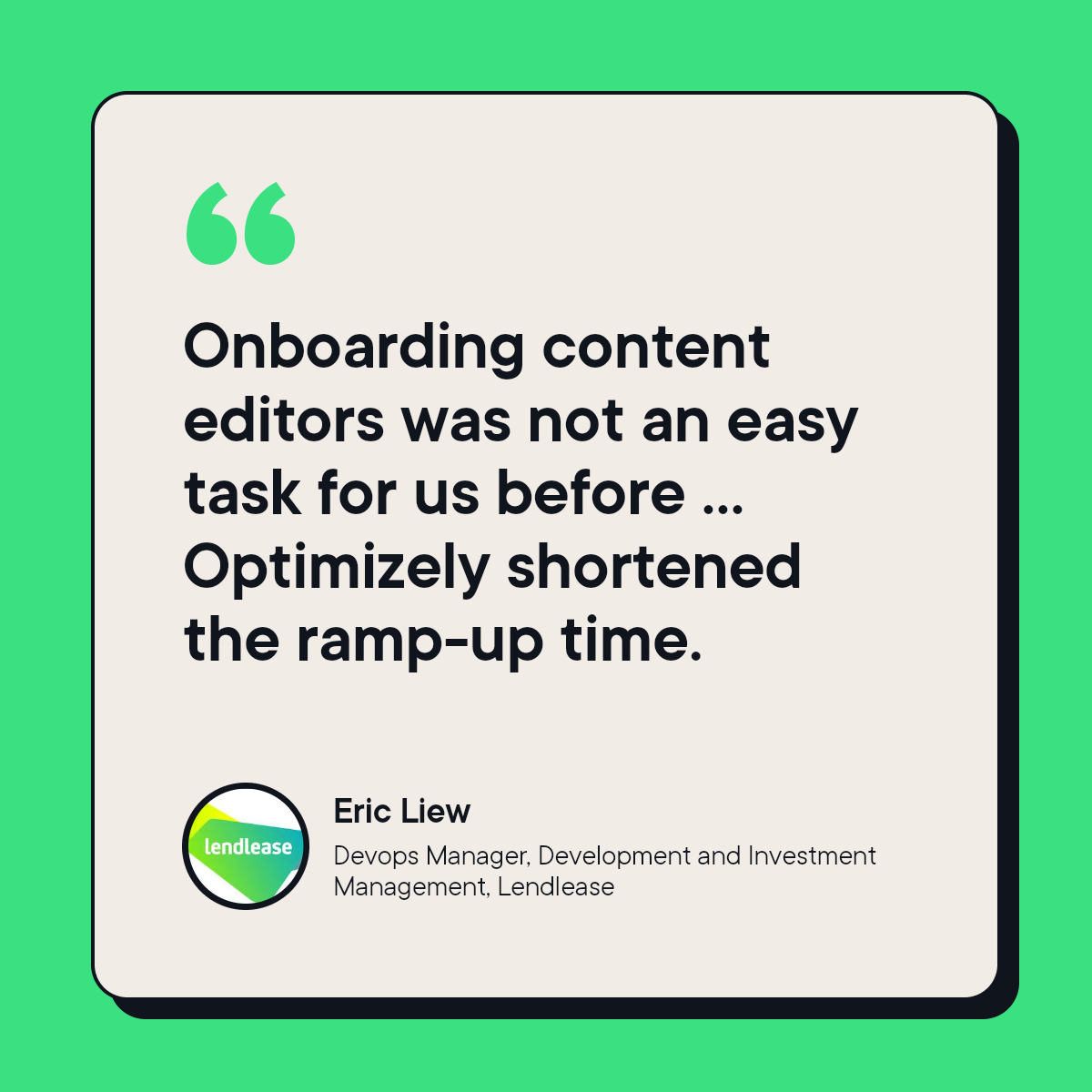
The last CMS migration you’ll ever undertake 😉
As some instances of Sitecore XP near end of life, organizations are faced with critical decisions about their digital future. Migrating to Sitecore XM Cloud is one option, but it’s a costly and complex endeavor.
Optimizely’s DXP offers a future-proofed solution, with an intuitive interface and cutting-edge features like AI-driven personalization. Optimizely’s ease of use, faster time-to-market, and scalability make it an excellent alternative for businesses looking to innovate without the technical burden and high costs associated with Sitecore.
Ready to move beyond the limitations of Sitecore XP? Learn more about how we can help your business achieve faster ROI, enhanced customer engagement, and a seamless migration process.

